This article was co-authored by Laura Marusinec, MD. Dr. Marusinec is a board certified Pediatrician at the Children's Hospital of Wisconsin, where she is on the Clinical Practice Council. She received her M.D. from the Medical College of Wisconsin School of Medicine in 1995 and completed her residency at the Medical College of Wisconsin in Pediatrics in 1998. She is a member of the American Medical Writers Association and the Society for Pediatric Urgent Care.
There are 11 references cited in this article, which can be found at the bottom of the page.
wikiHow marks an article as reader-approved once it receives enough positive feedback. In this case, 97% of readers who voted found the article helpful, earning it our reader-approved status.
This article has been viewed 468,525 times.
Nosebleeds can be caused by an injury, but also by dryness and irritation inside your nose. You can take steps to prevent nosebleeds by not irritating your nose with picking, scratching or rubbing. You can help keep the inside of your nose moist by increasing the humidity of your home, and by applying petroleum jelly to the inside of your nostrils. If the bleeding doesn’t stop, or you cannot prevent recurring nosebleeds, talk to a doctor.
Steps
Avoiding Irritations
-
1Don’t pick your nose. By far the most common type of nosebleeds are anterior nosebleeds, when the bleeding comes from the lower septum, the wall between the two channels of your nose. This area has a lot of sensitive blood vessels that can bleed profusely when irritated. Picking your nose is one of the prime irritations that can cause these kinds of nosebleeds.[1]
- You should generally avoid picking your nose if you want to lower your chance of nosebleeds.
- Ensure you trim your nails regularly, so if you do happen to pick your nose, you are less likely to irritate it.
-
2Blow your nose rarely and gently. You can irritate your nose by picking it, but blowing your nose hard can also lead to nosebleeds. Blow your nose sparingly, and when you do blow it, be gentle and avoid using a lot of force. If you are suffering from a cold or allergies, and are blowing your nose more frequently than usual, this might provoke a nosebleed.[2]
- Vigorously rubbing your nose, or any other kind of physical irritation, or trauma, can also lead to nosebleeds.
Advertisement -
3Avoid non-prescription nasal sprays and certain oral medicines. Antihistamines, decongestants, and other medical but non-prescribed nasal sprays can be a cause of nosebleeds. Excessive use of these products can dry out the inside of your nose, leading to cracking and bleeding.[3] In addition, many oral antihistamines and decongestants can lead to dryness of your nasal passages and may increase nosebleeds. If these medicines help you deal with allergies but they are contributing to nosebleeds, then try to moderate your use, or talk to your doctor about other options, or discuss your other options with your doctor.
- Oral antihistamines and decongestants can also lead to dry nasal passages and increase the risk of nosebleeds.
-
4Cut down on your use of aspirin. If you are regularly taking aspirin, and begin to suffer nosebleeds there could be a connection. Medicines, such as aspirin and anticoagulants, cause you to bleed more easily, and this can heighten the risk of a nosebleed occurring.[4]
- Talk to your doctor about your use of anti-inflammatory drugs, such as aspirin, ibuprofen, and naproxen.
- If you have been prescribed something and think it may be causing nosebleeds, talk to your doctor.
- Do not stop taking prescribed medication unless your doctor tells you to. Stopping these medications could lead to serious health complications. If you can't avoid taking aspirin or anticoagulants, talk to your doctor about the best ways to prevent and treat nosebleeds.
-
5Quit smoking. If you are prone to nose bleeds, then it is important to quit smoking. Smoking will increase the chances that you will get nosebleeds by drying out your nose. Smoking also increases nasal irritation.[5]
- Talk to your doctor about your options for smoking cessation. There may be medications or other options available to you to help you quit.
Protecting Your Nose
-
1Apply petroleum jelly to the inside of your nose. If the inside of your nose is dry and irritated you have a heightened risk of nosebleeds. You can help to negate this risk by carefully applying a thin layer of petroleum jelly to the inside of your nose. This will keep your nasal passage moist and reduce the chance of dryness and irritation.[6] However, there is some concern this may cause lipoid pneumonia over time which can be dangerous.[7]
- You can re-apply the jelly two, three or four times a day.[8]
-
2Use a saline or water-based nasal gel. An alternative to petroleum jelly is a nasal gel that is especially designed to keep the inside of your nose moist. You can buy these gels over-the-counter from your local pharmacy or drug store. Be sure to apply the gel carefully, and according to the instructions on the packaging.[9]
- Nasal saline sprays are another option to keep your nasal passages moist.
-
3Wear a head guard during sports. If you are participating in sports that are likely to result in your head being knocked around, such as rugby, football, or martial arts, you should consider wearing a head guard. A head guard can help protect your head and reduce the impact of bangs to the head, which may in turn lower your chances of suffering a nosebleed.[10]
-
4Know when to visit the doctor. If you experience nosebleeds frequently, and you are not able to prevent them you should make an appointment to see your doctor. If a child under the age of two has a nosebleed, call your doctor. You should also speak to a doctor if you are taking blood-thinning medication, have a clotting disorder, or have high blood pressure, and if your nosebleeds are coupled with symptoms of anaemia, such as heart palpitations or a rapid heart rate, dizziness, a pale complexion, and shortness of breath. Seek immediate medical help if:[11]
- The bleeding continues for more than twenty minutes.
- You have lost a lot of blood and the bleeding is heavy.
- You are having trouble breathing.
- You have swallowed a lot of blood, which is making you vomit.
- The nosebleed developed after a serious injury.
Making Changes to Your Home Environment
-
1Humidify your home. Low humidity can be a common cause of nosebleeds, so if your house has a low level of humidity and you suffer frequent nosebleeds, increase the humidity at home. You can increase humidity levels across your entire house, but is especially important to make this change to your bedroom.[12]
- Dry air can be a major contributor to nosebleeds, which can be countered with a humidifier.
- If you find that your nose has become very dry, breathe in some moist air. You could do this by turning on the shower and staying in the bathroom with the steam from the shower for 15 to 20 minutes at a time.
- You could also consider using a cold mist vaporizer in your bedroom.
-
2Lower the heat where you sleep. You can help to limit your chances of having frequent nosebleeds by turning down the heating in your bedroom. A lower temperature and cooler air will reduce the risk of drying out your nasal passages. Try to keep the temperature between around 60°F (16°C) to 70°F (21°C) where you sleep at night. However, using the air conditioner too much will lower humidity, and cause nosebleeds.
- Elevating your head when you sleep, by using an extra pillow, may also help you avoid nosebleeds.
-
3Stay hydrated. When your nasal membranes dry out, they will be more susceptible to cracking and bleeding. Keeping your home humidified is one when to prevent this, but you should also be sure that you keep your body well hydrated by drinking plenty of water. If you suffer from serious and recurring nosebleeds, drink at least the recommended eight glasses a day. In particularly dry air, try to have a little water every fifteen minutes.[13]
Expert Q&A
-
QuestionWhat if you tip your head back and the blood goes through your mouth? I tried pinching the area between my eyes, but the bleeding won't stop!
 Laura Marusinec, MDDr. Marusinec is a board certified Pediatrician at the Children's Hospital of Wisconsin, where she is on the Clinical Practice Council. She received her M.D. from the Medical College of Wisconsin School of Medicine in 1995 and completed her residency at the Medical College of Wisconsin in Pediatrics in 1998. She is a member of the American Medical Writers Association and the Society for Pediatric Urgent Care.
Laura Marusinec, MDDr. Marusinec is a board certified Pediatrician at the Children's Hospital of Wisconsin, where she is on the Clinical Practice Council. She received her M.D. from the Medical College of Wisconsin School of Medicine in 1995 and completed her residency at the Medical College of Wisconsin in Pediatrics in 1998. She is a member of the American Medical Writers Association and the Society for Pediatric Urgent Care.
Board Certified Pediatrician Try to sit leaning forward when you have a nose bleed. If you are tipping your head back and blood gets in your mouth, it is not dangerous, but it can make you vomit. It's better to pinch a little lower on your nose, just above your nostrils (just below the bony prominence of your nose) instead of between your eyes.
Try to sit leaning forward when you have a nose bleed. If you are tipping your head back and blood gets in your mouth, it is not dangerous, but it can make you vomit. It's better to pinch a little lower on your nose, just above your nostrils (just below the bony prominence of your nose) instead of between your eyes. -
QuestionI have heard that FESS nasal gels can help if you have frequent nose bleeds. Is this true?
 Laura Marusinec, MDDr. Marusinec is a board certified Pediatrician at the Children's Hospital of Wisconsin, where she is on the Clinical Practice Council. She received her M.D. from the Medical College of Wisconsin School of Medicine in 1995 and completed her residency at the Medical College of Wisconsin in Pediatrics in 1998. She is a member of the American Medical Writers Association and the Society for Pediatric Urgent Care.
Laura Marusinec, MDDr. Marusinec is a board certified Pediatrician at the Children's Hospital of Wisconsin, where she is on the Clinical Practice Council. She received her M.D. from the Medical College of Wisconsin School of Medicine in 1995 and completed her residency at the Medical College of Wisconsin in Pediatrics in 1998. She is a member of the American Medical Writers Association and the Society for Pediatric Urgent Care.
Board Certified Pediatrician FESS nasal products (including gel) are saline sprays and gels. They are often recommended for people prone to nosebleeds due to dryness. There are other brands available as well. If a FESS product does not provide the relief you need, then try a different brand, or talk to your doctor.
FESS nasal products (including gel) are saline sprays and gels. They are often recommended for people prone to nosebleeds due to dryness. There are other brands available as well. If a FESS product does not provide the relief you need, then try a different brand, or talk to your doctor.
References
- ↑ http://www.nhs.uk/Conditions/Nosebleed/Pages/Causes.aspx
- ↑ http://depts.washington.edu/anticoag/home/sites/default/files/Preventing_Treating_Nosebleeds_1_10.pdf
- ↑ https://kidshealth.org/Nemours/en/parents/nose-bleed.html?WT.ac=p-ra
- ↑ https://www.seattlechildrens.org/conditions/a-z/nosebleed/
- ↑ https://familydoctor.org/condition/nosebleeds/
- ↑ https://www.med.umich.edu/pdf/Nosebleed-Dos-and-Donts.pdf
- ↑ https://www.ncbi.nlm.nih.gov/pmc/articles/PMC2219803/
- ↑ http://depts.washington.edu/anticoag/home/sites/default/files/Preventing_Treating_Nosebleeds_1_10.pdf
- ↑ https://www.med.umich.edu/pdf/Nosebleed-Dos-and-Donts.pdf
About This Article
To prevent nose bleeds, apply a thin layer of petroleum jelly to the inside of your nose 2-4 times a day to reduce the dryness and irritation that can make your nose bleed. Alternatively, use a saline- or water-based nasal spray to keep your nasal passages moist. You should also keep your bedroom between 60 and 70 degrees Fahrenheit when you sleep, and run a cool most vaporizer to prevent nasal dryness. Additionally, try to drink at least 8 glasses of water every day so your nasal membranes don’t dry out. For more tips from our Medical co-author, including how to tell when you should visit a doctor about your nose bleeds, read on!
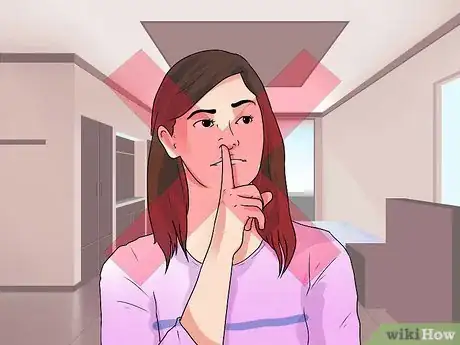
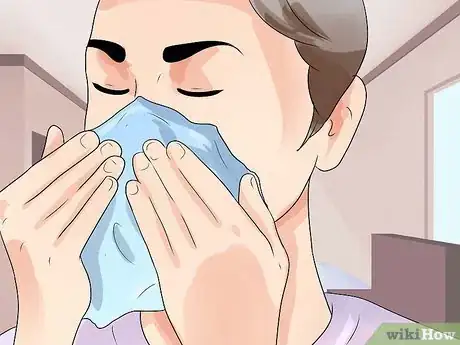
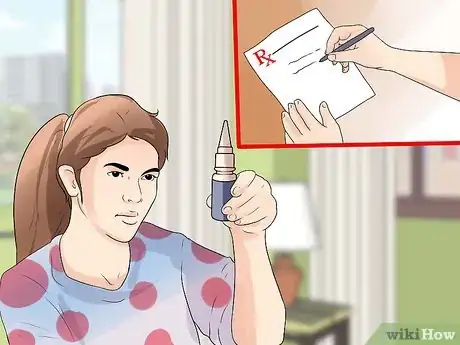
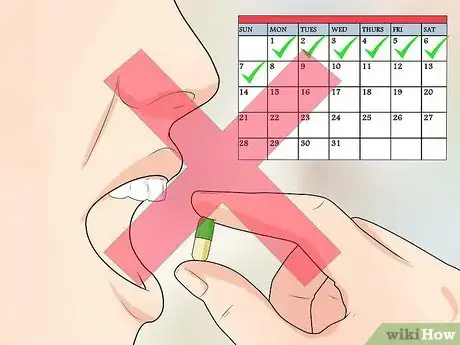
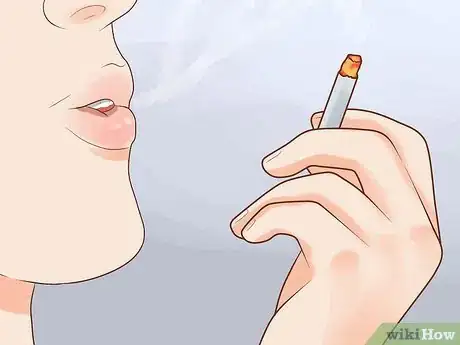
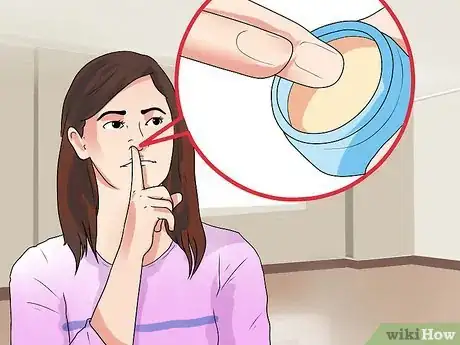

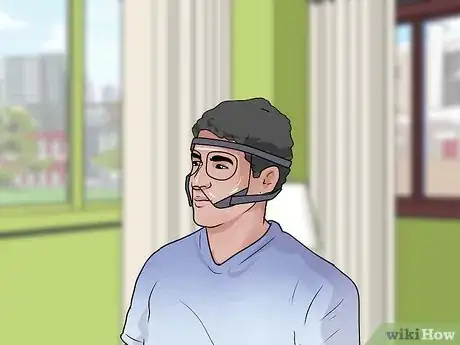



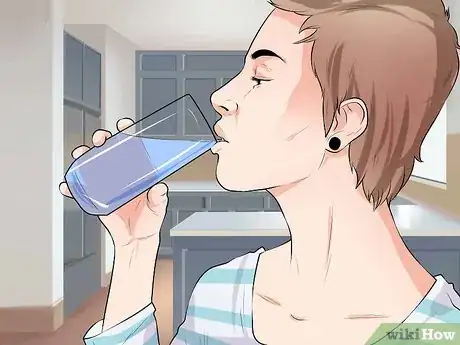
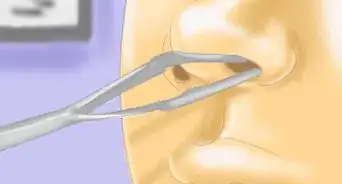


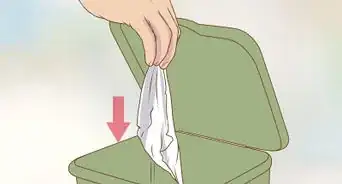
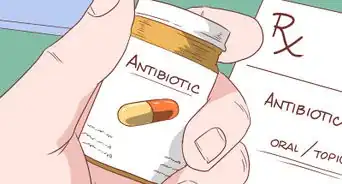
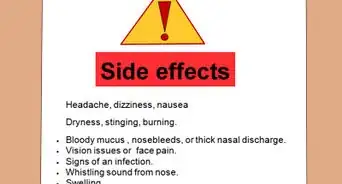
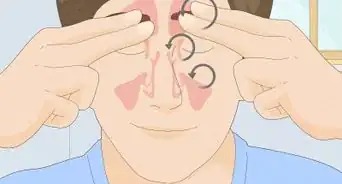

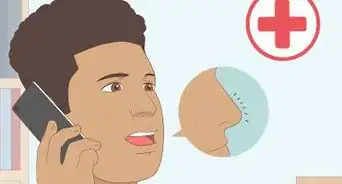

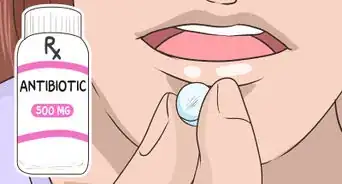
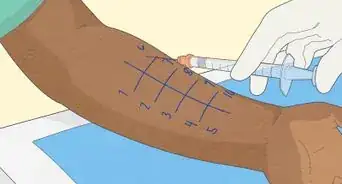

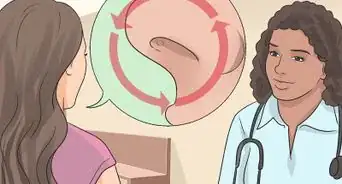










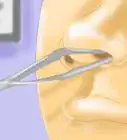


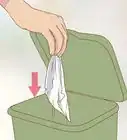



































Medical Disclaimer
The content of this article is not intended to be a substitute for professional medical advice, examination, diagnosis, or treatment. You should always contact your doctor or other qualified healthcare professional before starting, changing, or stopping any kind of health treatment.
Read More...